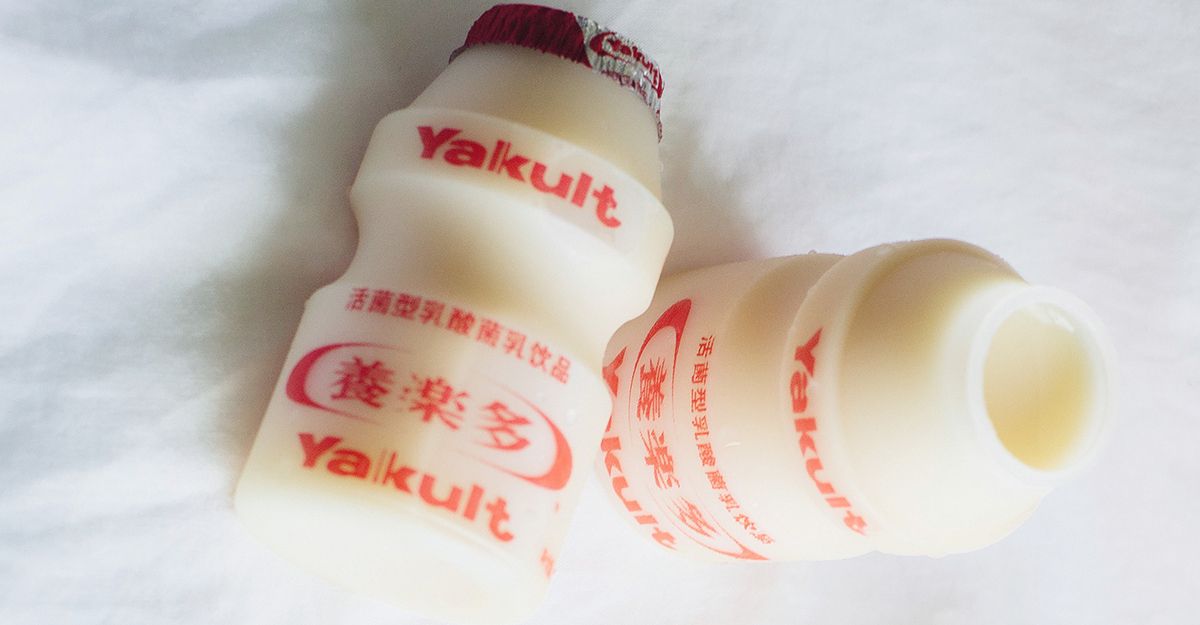Can Probiotic Drinks Be Effective and What Are They?

Probiotics have gained popularity among health enthusiasts for their numerous health benefits supported by emerging research. From reducing the risk of certain diseases including cancer and heart disease to improving the immune system, probiotics have shown promising results. But what about probiotic drinks? Are they the best source of daily probiotics?
According to a report by Beverage Industry, functional beverages including probiotic drinks are now the hottest bottled beverages widely available in grocery stores. The labels of these beverages often claim benefits such as 'detoxifying' and 'energy-boosting' which make them more alluring.
Although the FDA has yet to approve any health claims for probiotics, these 'good bacteria' play a crucial role in maintaining a healthy gut and stronger immunity, shares Jackie Newgent, R.D.N., C.D.N, author of The With or Without Meat Cookbook. "Probiotics help maintain the natural balance of organisms in our intestines and can help treat and potentially prevent GI issues such as diarrhea, irritable bowel syndrome, and those resulting from antibiotic treatment," she says.
You don't necessarily have to consume supplements to obtain enough of these beneficial bacteria as they can be found in fermented dairy products like yogurt and kefir, naturally aged cheese, miso, tempeh, pickles, sauerkraut, kimchi, sourdough bread, and kombucha, says Newgent. "If you're regularly eating foods rich in probiotics, purchasing these probiotic drinks isn't necessary, especially if you're on a tight food budget," she adds. However, opting for a probiotic beverage is okay if you have minor digestive issues or don't regularly consume natural food sources of these good bacteria, Newgent advises.
Newgent suggests including one serving of probiotic-rich food daily, such as one cup of plain yogurt. If you prefer to get probiotics through yogurt, look for products that carry the International Dairy Foods Association's 'Live & Active Culture' seal. To ensure that you're getting a significant amount of probiotics, Newgent advises that you look out for this seal as obtaining it is voluntary.
If you choose to go the probiotic drinks route, fermented milk beverage kefir is a healthy drinkable probiotic recommended by both Newgent and Erin Palinski-Wade, R.D., C.D.E., author of The 2-Day Diabetes Diet. Newgent highly recommends Lifeway Kefir for its wide range of probiotic-rich products that are also excellent sources of protein, calcium, and vitamin D. GoodBelly's StraightShot is also a great option for vegans as it's a certified organic oat milk beverage that contains no added sugars.
"If you prefer to drink your probiotics, make sure the label mentions the strains of probiotics it contains as well as the CFUs (colony forming units) to know how much probiotic you are actually getting," says Palinski-Wade. Experts recommend probiotics with 5 to 15 billion CFUs per serving for daily use since less may be ineffective, and long-term use of very high doses hasn't been well studied. However, as everyone's microbiome is different, you might have to experiment with different probiotic brands to find the one that works best for you.
...work digestive miracles in minutes. If you're hoping that chugging a probiotic drink will help you 'detox' after a particularly indulgent weekend or 'clean your system' so you feel more regular, know that taking any kind of probiotic won't produce an immediate bowel movement like taking a laxative would, notes Palinski-Wade. 'However, over a period of time, regular consumption can help to improve regularity, decrease GI bloat, and combat constipation,' she says.
...be a great complement to your fitness routine. If you're regularly following a strenuous training routine, you could be suppressing your immune system and making your body more susceptible to infection. Since probiotics can help to strengthen the immune system, consuming them regularly can benefit athletes and avid exercisers alike, says Palinski-Wade. And probiotic drinks could be a great option for post-workout fueling, especially if you're on the go.
Remember that too much of a good thing isn't always better. While probiotics can be beneficial to your health, if you're eating multiple foods and beverages that contain probiotics along with supplements, you can potentially throw off the balance of bacteria in your intestines, says Palinski-Wade. If you choose to supplement your diet with probiotics, it's best to reach for food first and know how much you are consuming. If you want to consider probiotic supplements, speak with your dietitian or physician about what dosage is appropriate for you.
And if you're already getting enough of the good bacteria, there's no need to add a probiotic drink to the mix. 'Don't be obsessed about probiotics or think they can turn an unhealthy diet into a healthful one,' says Newgent. 'Often if you're focusing on eating a nutrient-rich, plant-focused, whole food–based diet, you'll probably be getting everything you need for good gut health,' she adds.




